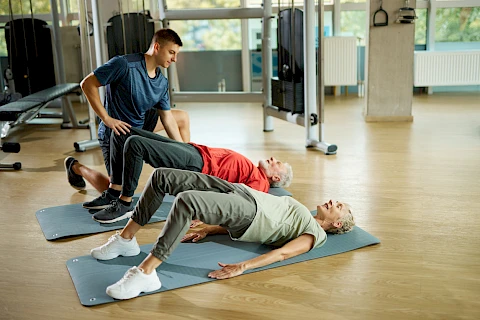
November marks Bladder Health Month, making it a good time for seniors and their caregivers to pay attention to this often-overlooked aspect of health. Several changes can affect bladder function as we age, such as decreased bladder capacity and weakened bladder muscles. Seniors may experience conditions like incontinence or urinary tract infections more frequently, but with the right care, these issues can often be managed or even prevented.
Maintaining good bladder health can significantly improve the quality of life for seniors, reducing discomfort and preventing more serious issues. This blog provides practical tips to help seniors and caregivers maintain bladder health.
Tip 1: Stay Hydrated
One of the simplest ways to support bladder health is by staying hydrated. While it may seem counterintuitive, proper hydration helps maintain a healthy bladder. Seniors should aim to drink about 6-8 cups of water daily unless otherwise advised by a healthcare provider. It's a myth that drinking less water will improve bladder issues. It could lead to dehydration and more concentrated urine, irritating the bladder.
Tip 2: Exercise Pelvic Floor Muscles
Strengthening pelvic floor muscles, also known as Kegel exercises, can help control bladder function. These exercises are simple and effective. Seniors can perform them anywhere by tightening the muscles to stop urination, holding for a few seconds, and then releasing. Integrating these exercises into a daily routine can improve bladder control and reduce leakage.
Tip 3: Avoid Bladder Irritants
Certain foods and beverages can irritate the bladder. Common irritants include caffeine, alcohol, spicy foods, and acidic fruits. Everyone's triggers are different, so seniors need to pay attention to their diets and notice what causes discomfort. A bladder-friendly diet focusing on gentle, non-irritating foods can be beneficial. Consider incorporating more whole grains, vegetables, and lean proteins, which support bladder health.
Tip 4: Maintain a Healthy Weight
Maintaining a healthy weight is essential for bladder health. Excess weight can pressure the bladder, increasing urgency and possible leakage. Seniors can manage their weight through a balanced diet and regular physical activity tailored to their abilities. Always consult a doctor before starting a new exercise routine. If weight management is challenging, consulting a professional, such as a dietitian or physical trainer, can provide personalized guidance.
Tip 5: Schedule Regular Bathroom Breaks
Establishing regular bathroom habits can help manage bladder health. Seniors should use the bathroom every 3-4 hours to prevent the bladder from becoming overly full. For those dealing with urgency or frequency issues, setting a routine and sticking to it can teach the bladder to hold and release urine better. Reminders like alarms can help maintain this schedule, promoting bladder health over time.
Tip 6: Discuss Concerns with Healthcare Providers
Communication with healthcare providers is critical to addressing bladder health concerns. Seniors should have open conversations about any symptoms like frequent urination, pain, or changes in urine color. Such signs can indicate a problem that warrants medical attention. Healthcare providers can offer treatments or recommend lifestyle changes to manage bladder health concerns better, and early discussions can often prevent minor issues from becoming serious.
How Are You Supporting Good Bladder Health?
Bladder health plays a vital role in the well-being of seniors. For personalized support and care in maintaining good health, contact us. Senior Helpers Palm Coast serves Bunnell, Flagler, St. Johns, Volusia County, and St. Augustine. Prioritizing bladder health this November can lead to a more comfortable life.